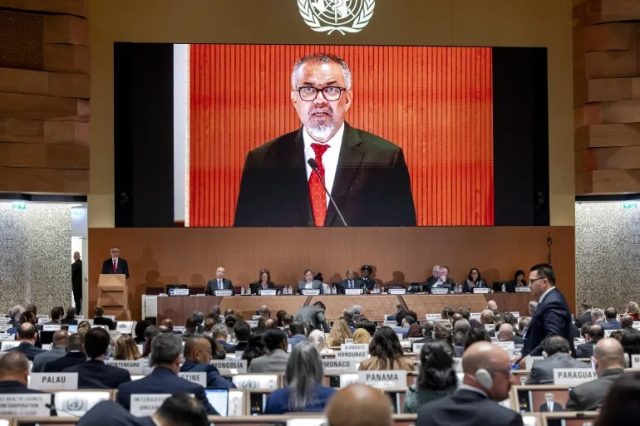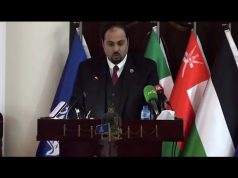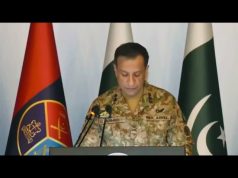UNITED NATIONS / GENEVA, May 20, 2025 (WNP): Member States of the World Health Organization (WHO), in a historic move, have formally adopted the world’s first international agreement for improving global preparedness and response to future pandemics. The decision follows three years of intense negotiations launched in the wake of the COVID-19 crisis.
The agreement, approved overwhelmingly during the 78th World Health Assembly in Geneva—with 124 votes in favor and 11 abstentions—marks a significant milestone in strengthening global health security. WHO Director-General Dr. Tedros Adhanom Ghebreyesus hailed it as a “victory for public health, science, and multilateral action,” emphasizing its potential to avert the devastating consequences witnessed during COVID-19.
Dr. Teodoro Herbosa, President of this year’s Assembly, called for urgent implementation of the accord’s key provisions, including equitable access to life-saving health products.
The pandemic agreement addresses gaps exposed during COVID-19, particularly disparities in diagnostics, treatments, and vaccine distribution. It reaffirms national sovereignty, clarifying that WHO will not interfere with domestic laws or compel states to impose specific measures such as lockdowns or vaccinations.
Among the 11 abstaining nations were Poland, Italy, Israel, Iran, Russia, and Slovakia. Iran criticized the agreement’s lack of binding commitments on equitable access to medical countermeasures and the adverse impact of unilateral sanctions on health systems.
Notably, the United States, under the leadership of President Donald Trump, had previously initiated withdrawal from the WHO and did not participate in the vote. In a video address, U.S. Health Secretary Robert Kennedy criticized the agreement, calling it a mechanism to “lock in dysfunction.”
The next phase involves negotiations for a Pathogen Access and Benefit-Sharing (PABS) system, which will be reviewed at the 2026 Assembly before the agreement can enter into force after ratification by at least 60 countries.
Additional components of the accord include a new financial mechanism for pandemic preparedness and a global logistics network to ensure timely and equitable access to medical supplies during emergencies.
Pakistan’s active role, recognition
Pakistan is actively participating in the Assembly, with Federal Minister for Health Syed Mustafa Kamal leading the delegation. He is expected to address the Assembly, highlighting Pakistan’s achievements in healthcare, ongoing challenges, and its roadmap for progress, including polio eradication.
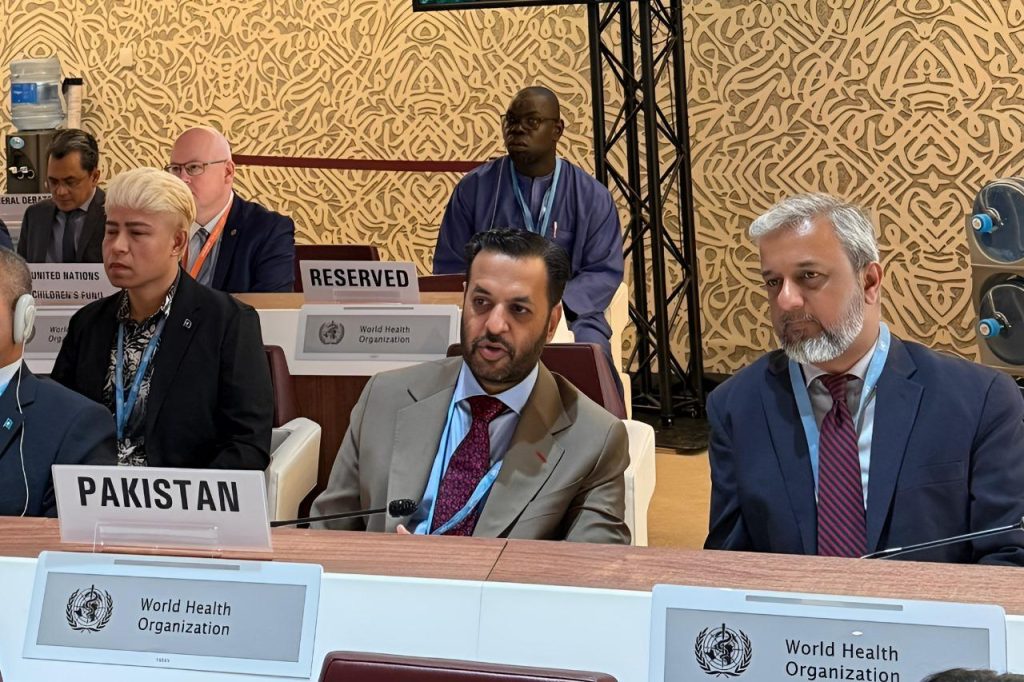
In a significant moment, Pakistan received formal recognition from the WHO for eliminating trachoma as a public health problem. Minister Kamal accepted the honorary certificate from Dr. Tedros in a special ceremony, calling it a “proud moment for the country’s health system.”
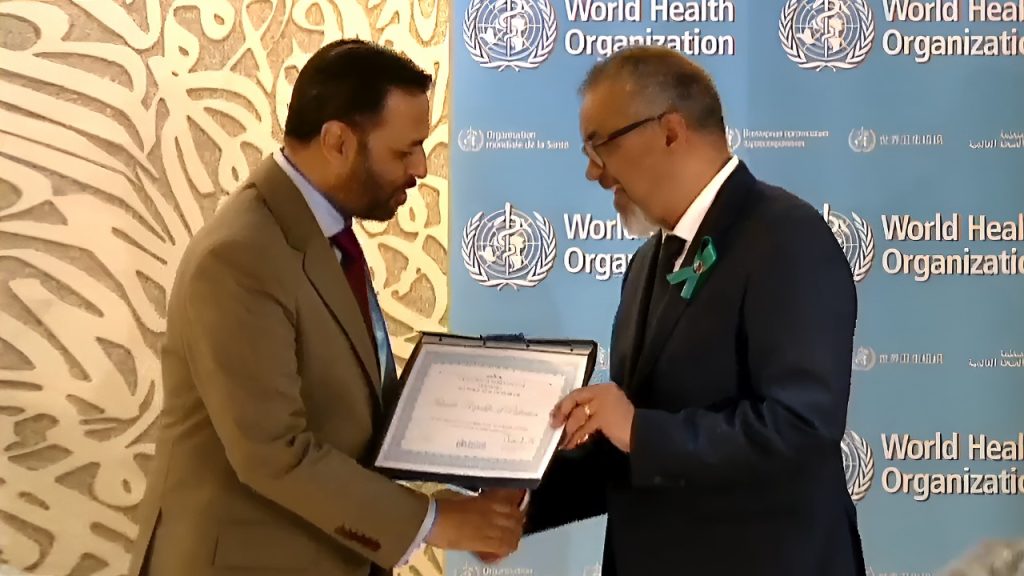
He credited frontline workers, provincial health departments, and international partners for their collaborative efforts, while reaffirming Pakistan’s commitment to eliminating polio.
Deepening global health ties
On the sidelines of the Assembly, Minister Kamal met with health officials from China, Cuba, and Türkiye to expand bilateral cooperation.
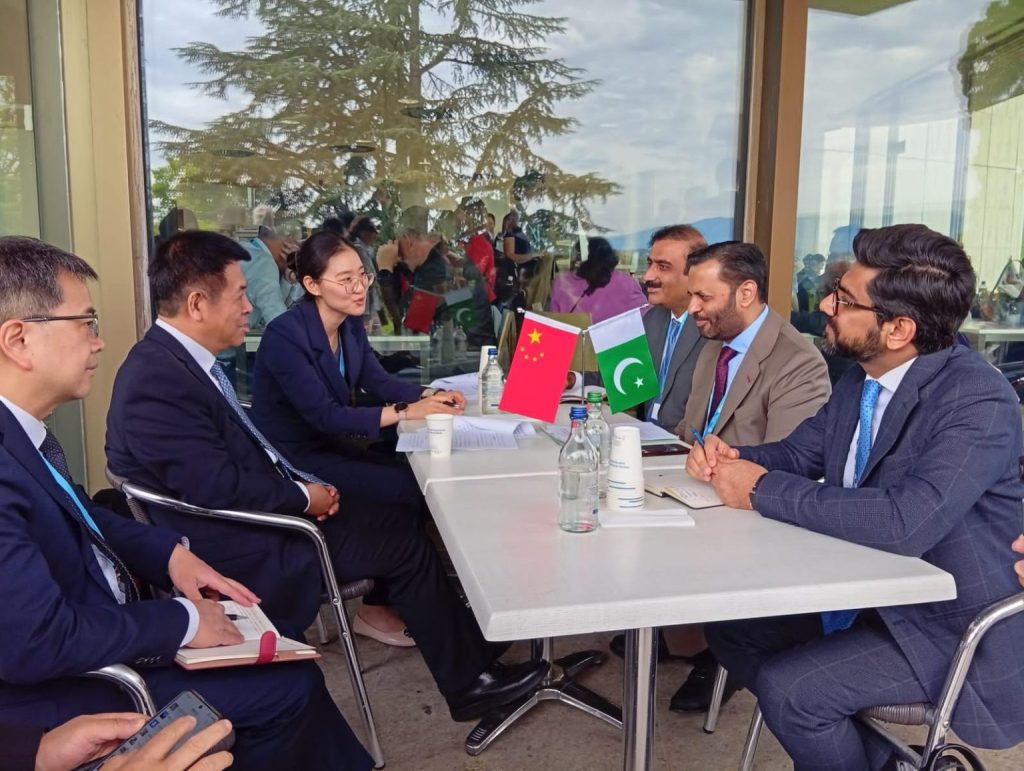
In meetings with Chinese officials, the two sides agreed to deepen collaboration in vaccine production, traditional medicine, and health technology. Pakistan announced plans to establish a dedicated desk for Chinese companies at the National Institute of Health (NIH), while China pledged to support local production of critical pharmaceutical ingredients.
During talks with Cuban health authorities, Minister Kamal expressed appreciation for Cuba’s past humanitarian assistance and discussed cooperation in primary healthcare, vaccine technology transfer, and medical training. He accepted an invitation to visit Cuba to further explore collaboration.
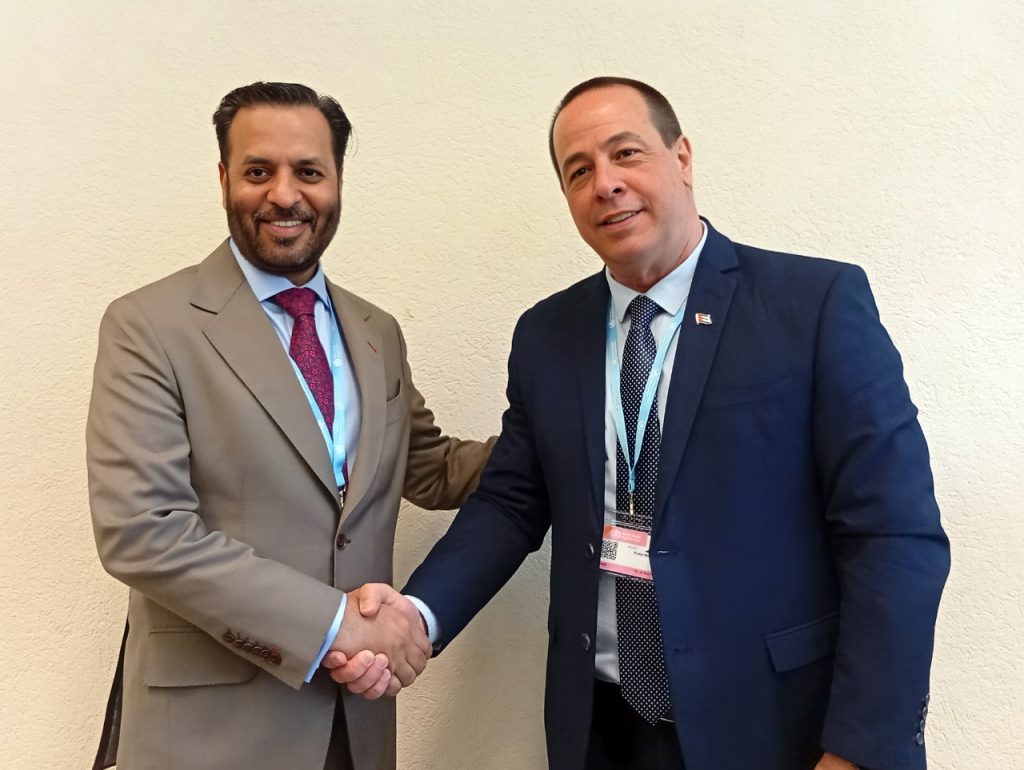
In a meeting with his Turkish counterpart, Kamal emphasized the deep-rooted ties between Pakistan and Türkiye, reaffirming mutual interest in expanding healthcare cooperation.

